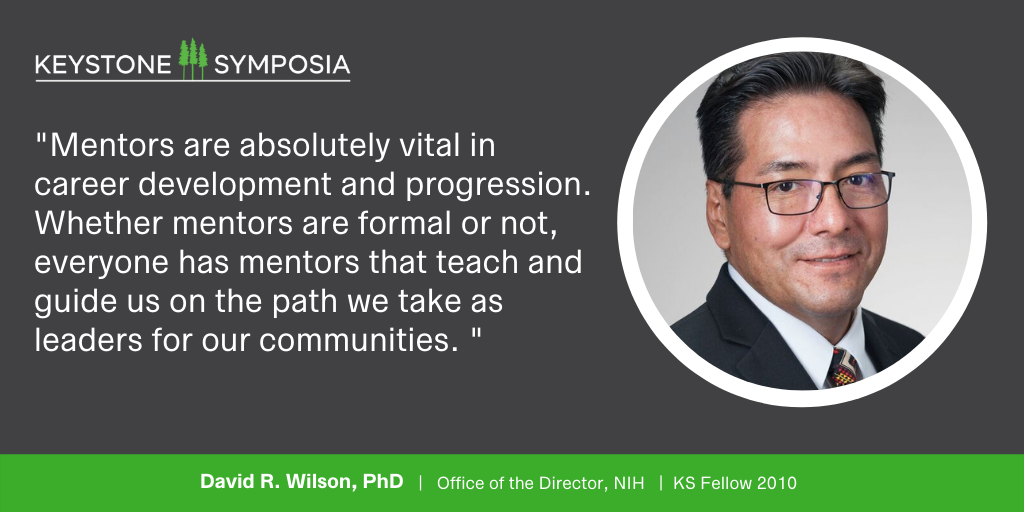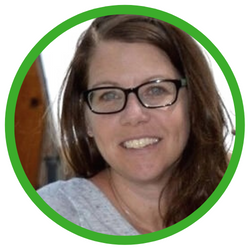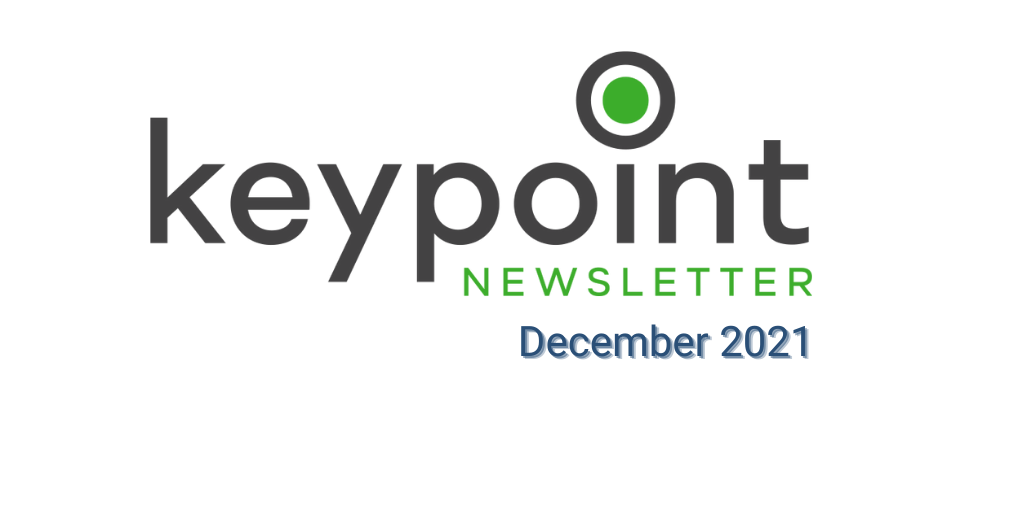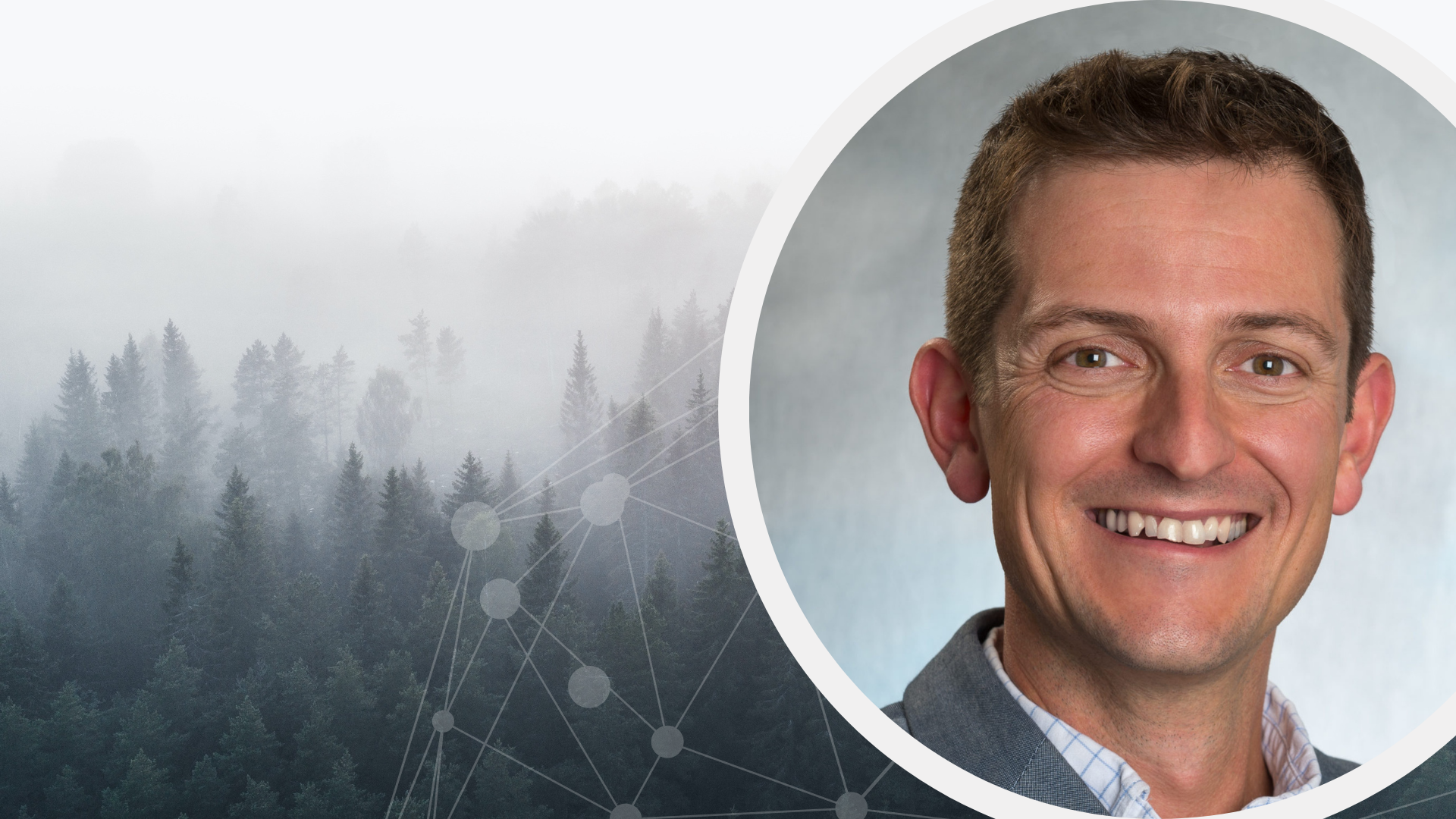Native American Heritage Month Spotlight
In honor of Native American Heritage month during November, we caught up with Keystone Symposia Fellow Dr. David Wilson, Director of the Tribal Health Research Office at the NIH. Dr. Wilson shares the importance of his work in combating health disparities in Native American communities and reflects on how his experiences in the fellows program have shaped his career.
1. Briefly describe your research, why it is important, and what motivates you to pursue this area.
Dr. Wilson: The Tribal Health Research Office (THRO) is the central hub of coordinating Tribal health research across the NIH. We do this by requesting input from Tribal communities on NIH policies, programs and activities. Our long-term goal is to create opportunities for the next generation of American Indian/Alaskan Native (AI/AN) researchers at the NIH. The office is located in the Division of Program Coordination, Planning, and Strategic Initiatives in the Office of the Director (OD), NIH.
The office that I lead fulfills an important coordinating and planning role as it works with NIH Institutes and Centers to leverage resources to develop and carryout the strategic plan to support tribal health research. NIH funds research aimed to improve health and reduce health disparities in AI/AN communities on such issues as cardiovascular disease, environmental health, drug and alcohol abuse, and diabetes. Programs are designed to empower individuals and communities with the information they need to improve the health of their community and prevent disease and injury. The NIH funds programs that encourage AI/AN students to enter biomedical research careers, join the biomedical workforce, come back to their communities and contribute their knowledge, as well as support AI/AN investigators who are leading their own biomedical research programs.
2. Share a pivotal moment that sticks with you from your experience as a Keystone Symposia Fellow, and how it impacted you.
Dr. Wilson: What impacted me the most was the opportunity to experience and contribute to the decisioning making process that determines what scientific topics and disciplines are supported through Keystone meetings across the world.
3. How has being a Keystone Symposia Fellow helped shape your career?
Dr. Wilson: My experience as a Keystone Symposia Fellow really encouraged me to advance from a post-doc to a senior research scientist at the NIH. This experience also encouraged me to begin thinking about bigger issues impacting diversity in biomedical research.
Download the Keystone Symposia Diversity in Life Sciences Program Flyer
Find out more about the Keystone Symposia Fellows Program
4. What are your thoughts on the importance of mentorship? How have mentors influenced your career, and how do you act as a mentor for your community?
Dr. Wilson: Mentors are absolutely vital in career development and progression. Whether mentors are formal or not, everyone has mentors that teach and guide us on the path we take as leaders for our communities. Mentors share their experiences as they moved forward through their careers and help demystify the road ahead for the next generations of underrepresented scientists.
5. What advice do you have for future candidates for the Keystone Symposia Fellows program?
Dr. Wilson: Enjoy the experience. Come well prepared and think about the broader applications of your experience as a fellow.

David R. Wilson, PhD
Director, Tribal Health Research Office
Division of Program Coordination, Planning, and Strategic Initiatives
Office of the Director, NIH
________________
Return to more articles from the December 2021 Keypoint Newsletter

About the Author

Heather Gerhart
Heather Gerhart earned her MA in Cultural Sustainability from Goucher College, and brings an understanding of how social science principles can be brought to bear in support of inclusive program design and development. She has worked in support of Keystone Symposia’s Diversity, Equity and Inclusion leadership since the inception of the organization’s Diversity in Life Sciences Program in 2007. Previously Keystone Symposia’s Sr. Grant Coordinator and Program Analyst, she helped to found, develop, and acquire funding for the Program in response to biomedical workforce development priorities at the National Institutes of Health and the National Science Foundation.





